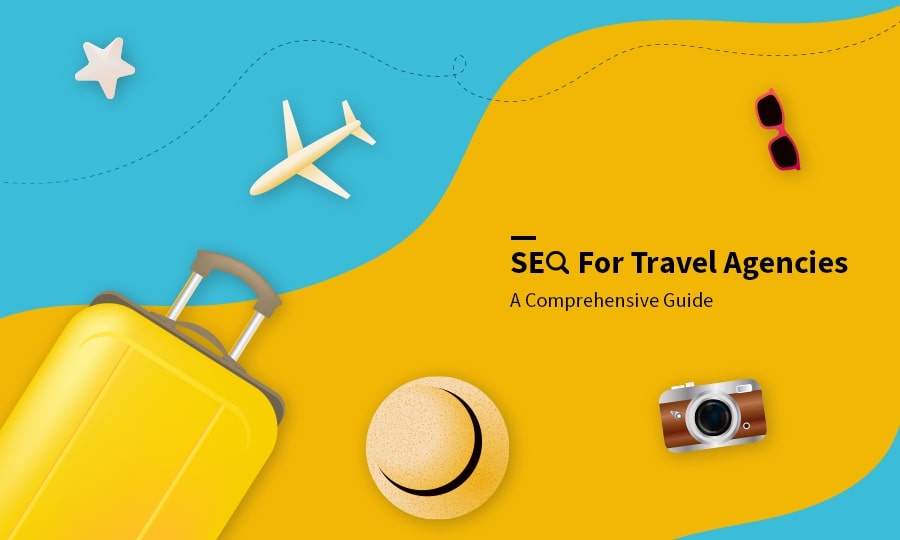Travel agents need more than just a lot of knowledge about destinations to do well in an industry that is always changing and competitive. They also need travel marketing strategies that help them stand out and get clients. Travel agents need to show off their unique value through effective travel marketing strategies because travellers can book their trips online in a million different ways.
This complete guide is for travel agents who want to grow their business and stay relevant in 2025. Here are some useful travel marketing strategies that will help travel agents connect with their audience, gain their trust, and get more bookings.
Why do travel agents need travel marketing strategies?
The internet and online travel agencies (OTAs) have changed that. Travel agents are no longer the only ones who can get travel information. But smart travellers still want personalised service, expert advice, and ease of use; this is possible through effective travel marketing strategies.
That's where travel marketing strategies come in. They assist you in:
– Get in front of the right people: These tips will help you get in front of people who are actively looking for expert help, instead of just hoping that travellers find you.
– Make your brand strong: To get people to stick with you, your marketing needs to show off your agency's personality, values, and expertise.
– Get more bookings and money: You can turn more enquiries into confirmed trips by connecting with qualified leads.
– Stay competitive: Travel agents who spend money on advertising can compete with big OTAs by focusing on giving each customer a unique experience.
In short, travellers won't book with you if they don't know about you or don't trust you, no matter how good your service is. Marketing fills that gap.
1. Make a website that looks professional and is easy to use
Your website is like a digital shopfront; it's often the first thing potential clients see when they look at your agency. Any good travel marketing strategies must include a website that is clean, modern, and easy to use on mobile devices.
What you need to put on your website:
– Clear messaging: Tell people who you are, what you do best, and why they should book with you.
– Easy to find: Visitors should be able to easily find information about packages, destinations, and how to get in touch with you.
– Beautiful pictures and videos: Use beautiful, high-quality pictures and videos to get people excited about travelling.
– Client testimonials: Use real feedback to gain trust and social proof.
– Blog section: Travel tips, destination guides, and industry news that are updated often help with SEO and build authority.
– Forms for getting in touch and calls to action: Make it simple for people to get in touch with you or ask for a quote.
How to make your website better:
– Make sure your site loads quickly; slow sites lose visitors.
– Make sure it works well on phones and tablets by using responsive design.
– Use basic SEO techniques like adding keywords to titles, meta descriptions, and alt text for images.
– Use analytics tools like Google Analytics to keep an eye on how visitors act.
Your website is a big part of your travel marketing strategies, so take the time and effort to make it look professional and welcoming.
2. Use the power of social media to market your business
You need social media as a tool for travel marketing strategies. You can show off your skills, share beautiful travel content, and talk to potential clients directly on platforms like Instagram, Facebook, TikTok, and LinkedIn.
How to use social media well:
– Share content that makes people feel good: Share pictures and videos of places you've been, clients you've worked with, travel tips, and behind-the-scenes looks at your work.
– Be consistent in your engagement: To make friends, respond to comments and messages quickly.
– Run targeted ads: Use social media's powerful targeting tools to reach people based on where they live, how old they are, what they like, and how they travel.
– Use stories and reels because they usually get more people to interact with and reach.
– Work with influencers: Team up with happy customers or travel influencers to get your message out to more people.
– Make content that people can interact with: Polls, quizzes, and contests can get people more involved.
Don't try to do too much at once. Pick two or three platforms that your audience uses the most and focus on those. Being consistent is important.
3. Keep clients and nurture leads with email marketing
Email is still one of the best ways of travel marketing strategies, even with new digital channels. A personalised and well-segmented email campaign can turn leads into bookings and past customers into repeat customers.
How to use email marketing to help your agency:
– Make your list: Get email addresses from your website, social media, and face-to-face conversations.
– Break up your audience: To send relevant offers, group subscribers by their interests, past bookings, or travel preferences.
– Make your messages unique: For better engagement, use names and make content specific to each group.
– Send out newsletters regularly: Share news about travel, new packages, destination spotlights, and special deals.
– Automate follow-ups: Send welcome emails, reminders, and thank-you notes after the trip without having to do anything.
To follow data protection laws like GDPR, you must get permission and make it easy for people to unsubscribe.
4. Make special deals and packages to get customers to come to you.
Travellers love getting a good deal, so giving them special deals gives them a reason to book with you instead of doing it online. Offering special packages is a strong part of your travel marketing strategies.
Some ideas for special deals:
– Discounts for people who book months in advance.
– Promotions that happen only during certain times of the year, like holidays or slow times.
– Discounted Telehealth and Tour Packages that include flights, hotels, and tours.
– Loyalty programs give repeat customers rewards or discounts.
– Extra things like private guides, VIP transfers, or free experiences.
Work closely with your suppliers to get the best prices, and then market these packages as special benefits that clients can only get through your agency.
5. Make yourself an authority with Content Marketing
Content marketing makes you look like a trustworthy travel expert and helps people find you online.
Some good ways to do content marketing are:
– Write about popular travel spots, travel tips, packing lists, or cultural insights on your blog.
– Videos: Make travel hacks, customer reviews, or highlights of your destination.
– Podcasts: Talk to travel experts or tell stories to get people who learn by hearing involved.
– Things you can download: Give people checklists, itineraries, or travel safety guides in exchange for their email addresses.
– Guest posts: Write articles for travel magazines or websites to get more readers.
Put your attention on quality and usefulness: SEO-friendly content brings in organic traffic and builds leads over time.
6. Get and use customer reviews and testimonials
Social proof is important for travel marketing strategies because it helps people trust them. Reviews that are positive often have a bigger impact on travellers than traditional ads.
How to get and use reviews:
– Ask for reviews soon after clients get back from their trips.
– Ask people to leave reviews on your website, Google My Business, TripAdvisor, and Facebook.
– Put testimonials front and centre on your homepage and in your marketing.
– Respond quickly and professionally to both good and bad reviews.
Make case studies or success stories out of happy clients.
A strong review portfolio is an important part of your travel marketing strategies and will help you build your reputation.
7. Pay for advertising campaigns
Paid ads help you reach very specific groups of people quickly and well. Paid ads help you get more leads and visibility faster, while organic marketing builds value over time.
Here are some tips for making paid ads work:
– Use Google Ads to target travel-related keywords like "travel agent near me" or "custom tours."
– Target your ads on Facebook and Instagram based on age and interests.
– Use reminder ads to get people who visited your website but didn't buy anything to come back.
– Make sure your goals and budgets are clear, keep an eye on your results, and change your campaigns often.
– Your ads should have strong calls to action and interesting pictures.
Paid ads are an important part of balanced travel marketing strategies.
8. Make connections and work with others in the industry
No travel agent works alone. Working with suppliers, other agents, and influencers can help you reach more people.
Ways to make connections and work together:
– Work with hotels, tour companies, and airlines to get special deals or referrals.
– Go to travel expos, trade shows, and events where you can meet people in your area.
– Become a member of an online community or a travel agent association.
Work with experts in your field to host webinars or live events.
– Cross-promote with other businesses that offer services that go well with yours, like travel insurance companies or gear stores.
– Strong partnerships make you look more trustworthy and bring in more business through word-of-mouth.
9. Keep an eye on and analyse your marketing efforts
To get the most out of your travel marketing strategies, you need to know what works and what doesn't. Making decisions based on data is very important.
How to keep track of and look at your travel marketing strategies:
– You can use Google Analytics to keep an eye on your website's traffic, where it comes from, and what people do when they get there.
– Use your email platform to keep track of how many people open your emails, click on links, and make purchases.
– Keep an eye on how people interact with your ads and social media.
– Ask your clients what they think of your marketing and service.
– Use data to change campaigns so that they keep getting better.
– Regular analysis makes sure you spend time and money on the strategies that work.
Frequently Asked Questions (FAQs)
Q1: How can travel agents compete with big websites that let you book travel?
A1: By focusing on personalised service, expert advice, exclusive deals, and building trust through targeted travel marketing strategies.
Q2: What social media site is best for travel agents?
A2: Instagram and Facebook are usually the best places to show off places and get travellers interested, but you should pick based on your audience.
Q3: How often should I write new posts on my travel blog?
A3: To keep your SEO going and your audience interested, try to post at least once a week.
Q4: Is it worth it to pay for ads?
A4: Yes, paid ads can give you a good return on investment by bringing in good leads if they are targeted correctly and optimised regularly.
Q5: What is the best way to get reviews from clients?
A5: Ask clients soon after their trip and make it easy for them by giving them direct links or short forms. Offer to show off their photos and stories as an extra reason to do it.
Conclusion
Travel agents who do well today know that good service isn't enough. To get the right clients, build a strong brand, and get more bookings, you need to use effective travel marketing strategies. You can grow your travel business in a way that lasts by making a professional website, using social media, sending targeted emails, offering exclusive packages, and always looking at how well your efforts are working.

 Start your Travel Business with Our 7 Day Free Trial Website!
Start your Travel Business with Our 7 Day Free Trial Website!





